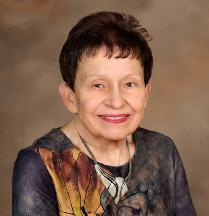- Standard Precautions, Fire Safety, and First Aid and Choking classes are online live learning. The state requires students to be on a device with internet access, a camera (turned on), and a microphone to visibly and audibly participate in the online live learning. Class meets in real time online so attendance is required for all scheduled hours of the class.
- Most CBRF employers require age 18+ to work as a resident assistant/caregiver. If you are under the age of 18 and plan to work in a CBRF as a resident assistant/caregiver, check with the CBRF employer prior to registering for a CBRF class.
- Your seat in the class is not guaranteed until your payer source is confirmed.
- Attendance is mandatory for all hours of the class.
Assisted Living Classes

Enroll in our state-mandated assisted living classes.
Whether a assisted living facility presently employs you or you desire to enhance your resume, we welcome you to enroll in any of our classes. If you are currently employed by an assisted living residence, they will most likely cover the class fee so be sure to ask before you register.
Online & In-Person Classes Perfect for CBRF, RCAC, Adult Day Care, Adult Family Home, and Group Home Employees
What types of assisted living facilities can I work at in Wisconsin?
Adult Day Care Centers (ADCC) offer care for a limited number of hours per day or week. At Adult Family Homes (AFH), Community-Based Residential Facilities (CBRF), and Residential Care Apartment Complexes (RCAC) individuals live in the residence permanently or for long periods of time. RCACs are geared toward individuals who are more independent, while AFHs and CBRFs offer higher levels of care.
What classes are required to work in assisted living?
To work in a CBRF and some AFHs you are required to take the following state-approved classes:
- Standard Precautions Class (online live learning)
Must be completed before starting on the floor - Fire Safety Class (online live learning)
Must be completed within 90 days of hire - First Aid and Choking Class (online live learning)
Must be completed within 90 days of hire - Medication Administration and Management Class (in-person)
Must be completed before passing medications - 15 Hours of Continuing Education (Annually)
Must be completed by all employees
Do I need to be a CNA to work as a caregiver in an assisted living facility?
No, you do not need to be a certified nursing assistant (CNA). Of course, CNAs are welcome to apply for assisted living job openings, and they might receive a higher wage due to their certification.
What are the job duties of a caregiver in an assisted living facility?
While responsibilities vary by employer, assisted living caregivers (resident assistants) typically help residents with personal cares, medication administration, meals, activities, housekeeping, laundry, and more. If you are a compassionate person with good communication skills, thrive on multi-tasking, and enjoy working with people of varying abilities, becoming a resident assistant may be the perfect fit for you.
Assisted Living Class Requirements
Assisted Living Class Fee
Price includes $25 state registry fee and class materials.
- Standard Precautions Class $90
- Fire Safety Class $115
- First Aid and Choking Class $130
- Medication Administration and Management Class $270
Assisted Living Class Fee Assistance
If you need assistance paying for the CBRF class, please consider the following options and resources:
- Your current or future healthcare employer may offer to pay for all or a portion of the class. Contact your employer prior to registering for the class.
- If you are a student, prior to registering for a class, contact your guidance counselor or program advisor to see if your school offers tuition assistance.
- WisCaregiver Career Programs
- Barron County Job Center
331 S Main St # 6 • Rice Lake, WI 54868 • (715) 234-6302 - Chippewa County Job Center
2829 County Highway I, Suite 2A • Chippewa Falls, WI 54729 • (715) 723-2248 - Eau Claire County Job Center
221 W Madison St, Suite 140-A • Eau Claire, WI 54703 • (715) 858-9675 - Trempealeau County Job Center
36084 Walnut St • Independence, WI 54747 • (715) 985-2118 - Other County Job Centers in WI
- West Central Wisconsin Community Action Agency, Inc. (WEST CAP)
Serving Barron, Chippewa, Dunn, Pepin, Pierce, Polk, and St. Croix Counties
525 Second St • PO Box 308 • Glenwood City, WI 54013 • (715) 265-4271 or (800) 606-9227
Refunds
Continuing Education Classes
Continuing education is essential for CBRF caregivers to maintain high standards of care, meet Wisconsin's 15 hours of required training, and adapt to evolving best practices. Ongoing training strengthens staff skills, reinforces safety procedures, and enhances understanding of resident needs—whether related to health, behavior, or daily living. By investing in professional development, CBRFs ensure compliance, reduce risks, improve resident quality of life, and foster a culture of competence, compassion, and confidence among their care teams.
The Healthcare Workforce Training Institute proud to provide the following CBRF continuing education courses, which can be offered individually or with any and all topics combined.
- Advanced Aging - Quality Care in Action: Help your CBRF team deepen their understanding of the physical, cognitive, and emotional changes associated with advanced aging with this engaging, evidence-based class. Participants will learn practical strategies to support dignity, independence, and engagement while addressing complex care needs. The class covers proactive health monitoring, effective communication for cognitive decline, and techniques to promote safety and quality of life in Wisconsin’s CBRF setting.
- Challenging Behaviors - Understanding & Responding with Skill: Equip your CBRF caregivers with practical strategies to address challenging behaviors across diverse client groups. Participants will learn how to identify triggers, use de-escalation techniques, and adapt care approaches to meet individual needs. With a focus on empathy, safety, and effective communication, this CBRF class helps staff respond confidently and compassionately, improving outcomes for both clients and care teams.
- Customer Service- Building Trust Through Exceptional Care: Enhance the communication, professionalism, and service skills of your CBRF team when they interact with residents, families, and coworkers. Class participants will learn techniques for active listening, problem-solving, and managing difficult situations with empathy and respect. By fostering positive relationships and exceeding expectations, caregivers can create a welcoming environment that supports both resident satisfaction and quality of care.
- Disability Awareness - Inclusive Care for Every Individual: Build understanding and sensitivity toward individuals with physical, cognitive, and developmental disabilities. Participants will explore the impact of disability on daily living, communication, and care needs, while learning practical strategies to promote dignity, independence, and inclusion. Through real-world examples and interactive discussion, caregivers will strengthen their ability to provide respectful, person-centered support in a CBRF setting.
- Fire Safety - Preparedness, Prevention & Response: Equip your CBRF staff with the knowledge and skills to prevent, respond to, and safely manage fire emergencies. Participants will review fire prevention measures, evacuation procedures, and the proper use of fire safety equipment. With a focus on protecting residents and staff, this class reinforces compliance with Wisconsin CBRF regulations while promoting a culture of safety and preparedness.
- First Aid & Choking - Rapid Response Skills for Caregivers: Prepare your CBRF team to respond quickly and effectively to medical emergencies. Participants will review essential first aid techniques, recognize signs of choking, and practice safe, appropriate interventions. With a focus on maintaining calm under pressure, this class builds confidence and competence to protect resident health and safety in critical moments.
- Food Safety - Protecting Health Through Proper Practices: Provide your CBRF staff with the knowledge and skills to handle, prepare, and store food safely in compliance with regulations. Participants will review safe food temperatures, cross-contamination prevention, personal hygiene standards, and cleaning protocols. By following best practices, caregivers can reduce the risk of foodborne illness and ensure meals are safe, nutritious, and enjoyable for all residents.
- Individual Service Plans - Personalized Care for Better Outcomes: Teach your CBRF staff how to create and implement effective Individual Service Plans (ISPs) that meet each resident’s unique needs and preferences. Participants will learn how to assess strengths, identify goals, and document care strategies in compliance with regulations. The class emphasizes collaboration, person-centered care planning, and regular plan updates to ensure the highest quality of individualized care.
- Managing Incontinence - Comfort, Dignity & Effective Care: Give your CBRF team the strategies to manage urinary and bowel incontinence while preserving resident dignity and comfort. Participants will learn about causes, prevention techniques, product selection, skin care, and infection prevention. The class emphasizes compassionate communication, individualized care planning, and best practices to promote health, independence, and quality of life for residents.
- Medication Administration - Accuracy, Safety & Compliance: Equip your CBRF staff with the knowledge and skills to administer medications safely, accurately, and in compliance with regulations. Participants will review the “Six Rights” of medication administration, proper documentation practices, and techniques to reduce errors. The CBRF class also covers recognizing side effects, responding to medication-related emergencies, and promoting resident safety through consistent best practices.
- Preventing Abuse & Neglect - Safeguarding Residents with Dignity: Empower your CBRF team to recognize, prevent, and respond to signs of abuse, neglect, and exploitation with this in-depth class. Participants will learn the types and indicators of abuse, mandatory reporting requirements, and strategies to create a safe, respectful environment for residents. Through case examples and interactive discussion, caregivers will strengthen their ability to protect vulnerable individuals while upholding ethical and legal responsibilities in a CBRF setting.
- Resident Rights - Promoting Dignity, Choice & Respect: Help your CBRF team understand and uphold the legal and ethical rights of residents. Participants will review Resident Rights regulations, explore real-world scenarios, and learn strategies to ensure dignity, privacy, and autonomy in care. By fostering a culture of respect and empowerment, caregivers can enhance the quality of life and build trust with those they serve.
- Specialized Diets - Nutrition for Individual Needs: Help your CBRF team understand and support residents with unique dietary requirements. Participants will learn about common specialized diets—such as diabetic, low-sodium, texture-modified, and allergen-free—along with safe food preparation, portion control, and monitoring strategies. The class emphasizes compliance with physician orders, nutrition guidelines, and regulations to ensure residents receive safe, appropriate, and enjoyable meals.
- Standard Precautions - Infection Prevention for Safer Care: Equip CBRF team with the knowledge and skills to prevent the spread of infection and maintain a safe environment for residents and caregivers. Participants will review proper hand hygiene, use of personal protective equipment (PPE), safe handling of sharps, and cleaning protocols. The CBRF class emphasizes compliance with regulations and best practices to protect health in all care settings.
- Workplace Violence - Prevention, Awareness & Response: Teach your CBRF team how to recognize, prevent, and respond to incidents of workplace violence. Participants will learn to identify early warning signs, use de-escalation techniques, and follow safety protocols to protect themselves, coworkers, and residents. The class also covers reporting procedures, self-protection strategies, and fostering a safe, respectful workplace culture in compliance with CBRF standards.
Looking for a different location?
We may be able to offer the CBRF classes in your community — Amery, Augusta, Barron, Black River Falls, Bloomer, Chetek, Chippewa Falls, Cumberland, Durand, Eau Claire, Hayward, Ladysmith, Menomonie, Mondovi, Neillsville, Osseo, Rice Lake, Turtle Lake, Spooner, Superior, and Whitehall to name a few.
Contact us for more information


